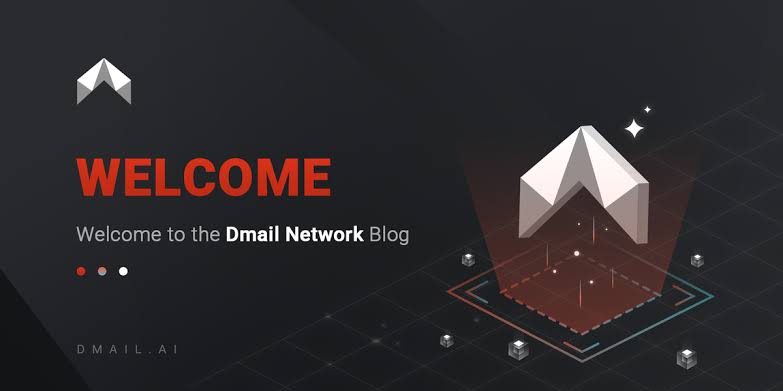Securing Digital Communication: How Dmail Protects Privacy in Web3
 Ekemini Ekanem
Ekemini Ekanem
1. Introduction: The Growing Need for Privacy in Digital Communication
In the era of mass surveillance, data breaches, and centralized control, privacy in digital communication has become a major concern. Traditional email services rely on centralized servers, making them vulnerable to hacking, censorship, and unauthorized data access.
Dmail Network is revolutionizing email communication in the Web3 space by integrating decentralization, blockchain security, and end-to-end encryption (E2EE) to ensure true privacy. This article explores how Dmail enhances user privacy and protects sensitive information in the decentralized world.
2. The Privacy Challenges of Traditional Email Services
Conventional email providers such as Gmail and Outlook operate under centralized architectures, which pose several privacy risks:
Data Mining & Surveillance: Many providers scan user emails for targeted advertising and compliance with government surveillance requests.
Centralized Storage Risks: Storing emails on central servers makes them susceptible to hacking, leaks, and unauthorized access.
Lack of True Encryption: Most services do not offer end-to-end encryption (E2EE) by default, leaving messages exposed.
Censorship & Access Restrictions: Governments and corporations can restrict or monitor email access based on regulations.
Risk: Users have no full control over their data, making privacy an illusion.
3. How Dmail Ensures Privacy in Web3 Communication
Dmail leverages blockchain and cryptographic techniques to create a truly private, censorship-resistant, and user-controlled email service.
a) End-to-End Encryption (E2EE) for Maximum Privacy
All messages are encrypted at the sender’s device and can only be decrypted by the intended recipient.
Uses public-private key cryptography, ensuring that even Dmail’s servers cannot read the content.
Prevents unauthorized access, even if network data is intercepted.
Impact: Unlike traditional email providers, Dmail ensures that only you and your recipient can access your emails.
---
b) Decentralized Identity & Access Control
Wallet-Based Authentication: No need for usernames or passwords—users log in via crypto wallets like MetaMask.
NFT & ENS Domain Integration: Users can own their email identity through NFT-based email domains.
Zero-Knowledge Proofs (ZKPs): Verify user authenticity without exposing personal data.
Impact: Eliminates phishing risks and prevents centralized authorities from accessing or controlling user accounts.
c) Censorship Resistance & Decentralized Storage
Blockchain-Immutability: Messages cannot be altered, deleted, or censored by third parties.
IPFS & Distributed Storage: Emails are stored across a peer-to-peer network instead of central servers.
No Single Point of Failure: If one node is compromised, email data remains safe across the decentralized network.
Impact: Protects freedom of speech and privacy, ensuring that no entity can manipulate or delete your emails.
d) Spam Protection Without Privacy Trade-Offs
Pay-to-Receive Model: Senders must stake $DMAIL tokens to send emails, discouraging spam and phishing attempts.
User-Controlled Access: Recipients can reject unwanted messages, ensuring inboxes remain private.
AI-Powered Threat Detection: Uses machine learning to block phishing and scam attempts.
Impact: Provides a secure inbox without relying on intrusive data tracking.
4. The Future of Privacy in Web3 Communication
Dmail is leading the charge in privacy-first email solutions, but the future holds even more enhancements:
Quantum-Resistant Encryption: Future-proofing against quantum computing threats.
Cross-Chain Privacy Protocols: Expanding Dmail’s integration with multiple blockchain networks.
AI-Powered Privacy Enhancements: Strengthening encryption and user control with smart privacy features.
Impact: Ensures that Dmail remains the gold standard for secure and private communication in Web3.
5. Conclusion: Why Dmail is the Ultimate Privacy-Focused Email Solution
In a digital landscape where privacy is constantly under threat, Dmail stands as a revolutionary solution for secure communication.
✔ End-to-end encrypted emails for total privacy.
✔ Decentralized identity and login methods protect user control.
✔ Censorship-resistant messaging ensures free and open communication.
✔ Spam prevention without compromising user data.
As Web3 adoption grows, Dmail’s innovative approach will continue shaping the future of privacy-first communication. If you value your data security, it’s time to switch to Dmail—the future of decentralized email.
Subscribe to my newsletter
Read articles from Ekemini Ekanem directly inside your inbox. Subscribe to the newsletter, and don't miss out.
Written by
